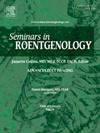Ethical, Regulatory, and Practical Challenges in Artificial Intelligence-Driven Chest Imaging
IF 1.3
4区 医学
Q4 RADIOLOGY, NUCLEAR MEDICINE & MEDICAL IMAGING
引用次数: 0
Abstract
Artificial intelligence (AI) enhances the practice of chest imaging by improving diagnostic accuracy, streamlining workflows, and facilitating personalized patient care. As a powerful tool, AI augments the expertise of radiologists, enabling more precise evaluations and quicker decision-making. This article examines the barriers to AI adoption in chest imaging, focusing on challenges related to bias, transparency, accountability, and data privacy. We discuss the ethical implications of AI-driven decision-making, particularly concerning fairness, and propose strategies to address these concerns. Additionally, we explore regulatory obstacles, including the approval pathways for AI algorithms and the need for continuous learning and adaptability in clinical settings. We also address practical considerations, such as the integration of AI tools into existing workflows, model generalizability, and economic factors. The article concludes with recommendations for responsible AI adoption, emphasizing the importance of interdisciplinary collaboration, robust validation frameworks, and continuous education for radiologists. By navigating these challenges, the radiology community can effectively leverage AI’s potential, ultimately leading to enhanced patient outcomes and improved diagnostic processes.
人工智能驱动的胸部成像中的伦理、监管和实践挑战
人工智能(AI)通过提高诊断准确性、简化工作流程和促进个性化患者护理来增强胸部成像的实践。作为一种强大的工具,人工智能增强了放射科医生的专业知识,实现了更精确的评估和更快的决策。本文探讨了人工智能在胸部成像中应用的障碍,重点关注与偏见、透明度、问责制和数据隐私相关的挑战。我们讨论了人工智能驱动的决策的伦理含义,特别是关于公平性,并提出了解决这些问题的策略。此外,我们还探讨了监管障碍,包括人工智能算法的批准途径以及临床环境中持续学习和适应性的需求。我们还讨论了实际的考虑,例如将人工智能工具集成到现有的工作流程中,模型的可泛化性,以及经济因素。文章最后对负责任的人工智能采用提出了建议,强调了跨学科合作、强大的验证框架和放射科医生持续教育的重要性。通过应对这些挑战,放射界可以有效地利用人工智能的潜力,最终提高患者的治疗效果,改善诊断过程。
本文章由计算机程序翻译,如有差异,请以英文原文为准。
求助全文
约1分钟内获得全文
求助全文
来源期刊

Seminars in Roentgenology
医学-核医学
CiteScore
0.90
自引率
0.00%
发文量
49
审稿时长
51 days
期刊介绍:
Seminars in Roentgenology is designed primarily for the practicing radiologist and for the resident. Each quarterly issue compiled by a leading guest editor covers a single topic of current importance. The clinical, pathological, and roentgenologic aspects are emphasized, while research and techniques are discussed insofar as they provide documentation and clarification of the subject under discussion. This Seminars series is of interest to radiologists, sonographers, and radiologic technicians.
 求助内容:
求助内容: 应助结果提醒方式:
应助结果提醒方式:


